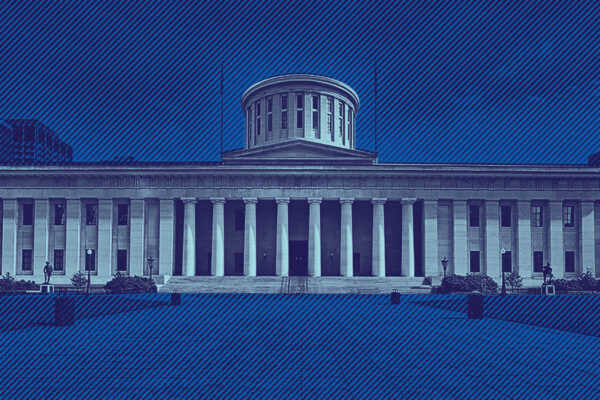Chair Brenner, Vice Chair Blessing, Ranking Member Hicks-Hudson, and members of the Senate Primary and Secondary Education Committee, thank you for the opportunity to provide opponent testimony on Amended Substitute House Bill (HB) 151. My name is Sean McCann, and I serve as a Policy Strategist for the ACLU of Ohio.
Simply put, HB 151 would cause immense harm for transgender youth and their families. We know that transgender & gender-nonconforming youth suffer from higher rates of suicidal ideation than their peers do, and that they are at high risk for homelessness compared to other youth. These youth are already made to feel like they do not belong, without a blanket ban on their ability to play on sports teams that match their identities.
HB 151 also represents unacceptable government overreach into school sports, which organizations like the Ohio High School Athletic Association (OHSAA) already oversee and regulate. As you all well know by now, OHSAA already has in place a policy for transgender students to participate in sports. Take it from Governor DeWine—“this issue is best addressed outside of government, through individual sports leagues and athletic associations, including the Ohio High School Athletic Association.”
With this in mind, Sen. Sykes’s proposal to codify OHSAA’s existing policy into law seems to be a much wiser and much less harmful course of action.
Additionally, I should note that the U.S. District Court for the Southern District of Ohio found in its 2020 Ray v. McCloud ruling that transgender people make up a quasi-suspect class entitled to heightened scrutiny in review of their equal protection claims. Relevant legal precedent is important to keep in mind when contemplating new laws dealing with any protected class of citizens.
Passing HB 151 in its amended form is the quintessential example of how rushed and ill-advised lame-duck legislating can be. As you all know, this bill passed the House with HB 61 tacked on as a floor amendment after a mini version of lame-duck prior to the summer recess. Instead of stripping out HB 61’s provisions, which are wholly unrelated to the intent of HB 151, this committee may decide to keep them, rush the bill to the Senate floor, and send it back to the House for concurrence.
Meanwhile, the original legislation, HB 61, has only received two hearings in the House Primary and Secondary Education Committee, way back in April and June of 2021. Notably, opponents have had zero opportunity to voice their concerns in a committee hearing until now.
This is not how the legislative process should work. Yet, it happens repeatedly, at the expense of the communities bills like HB 151 impact. Folks are left to watch out for last-minute committee agendas and scramble to offer testimony, assuming they are even available and able to get transportation downtown.
Further, with 11th-hour amendments and substitute bills, they often do not have an opportunity to read the most recent version of legislation. It bears repeating how inaccessible this process is for so many people.
I would also like to talk briefly about the opportunity cost you pay in spending so much time on a harmful bill like this. This committee has enormously important issues before it. Primary and secondary education is the bedrock of our state’s future. By spending time on legislation like this, which seeks to solve a problem that does not exist, the committee does students, teachers, staff, and parents across the state a tremendous disservice, especially the LGBTQ+ community.
The bottom line, though, is that HB 151 would make Ohio a substantially more hostile place for transgender and gender-nonconforming youth who just want to play their favorite sports in a safe environment. As such, the ACLU of Ohio urges the committee to reject it.
Trans youth have had to defend their right not just to play the sports that give them joy, but also to access the care and facilities they need, to get the support they need from their schools, and so on. They have had to do this before you, Senate committees, the State Board of Education, their local boards of education, and elsewhere.
Please think for just a moment about how exhausted they must be.
Thank you again, and I would be happy to answer any questions committee members may have.


